Docx files for personal book: Verbum 9 part 1; Verbum 9 part 2; Verbum 9 part 3; Verbum 9 part 4; Verbum 9 part 5; Verbum 9 part 6; How to use the Verbum Lectionary and Missal; Verbum 8 tips 1-30; Verbum 8 tips 31-49
Reading lists: Catholic Bible Interpretation
Please be generous with your additional details, corrections, suggestions, and other feedback. This is being built in a .docx file for a PBB which will be shared periodically.
Previous post: Verbum Tip 8r Next post: Verbum Tip 8t
How do I identify the grandchildren of Abraham?
One can see the information on the Biblical People Diagrams (no citation data). However, this data is not exposed for searching.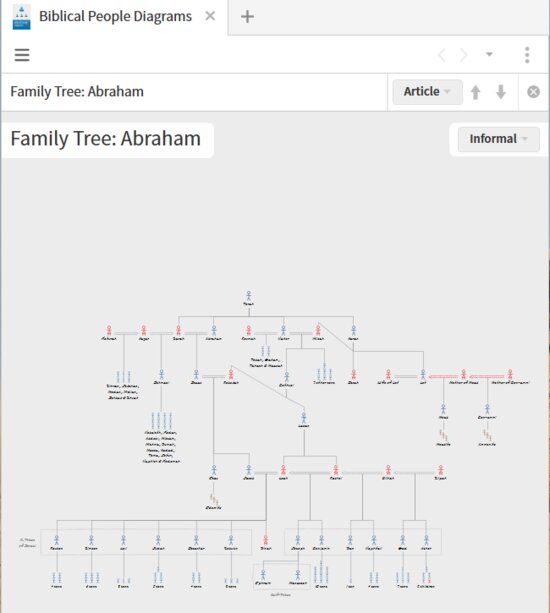
The second option is to check the See also section of the Factbook Abraham entry.
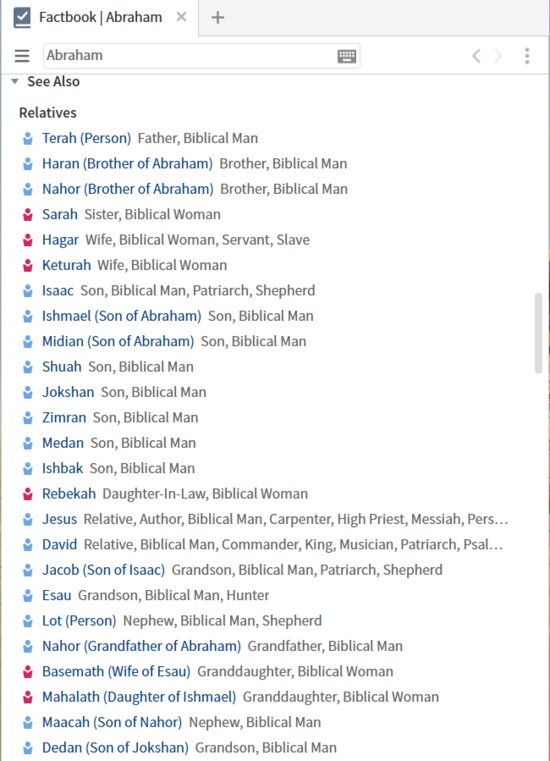
How do I make a visual filter of the Eissfeldt source coding?
Yes, visual filters use the same search arguments as the inline, Bible, basic, and morph searches . Parks, Jimmy. Source Criticism in the Bible Dataset Documentation. Bellingham, WA: Faithlife, 2018.) provides the information to build search arguments in the form of {Label Source Criticism WHERE Source = “L” AND Critic = “Eissfeldt"} Note that some passages are highlighted in multiple colors requiring the user to remember the results from color mixing.
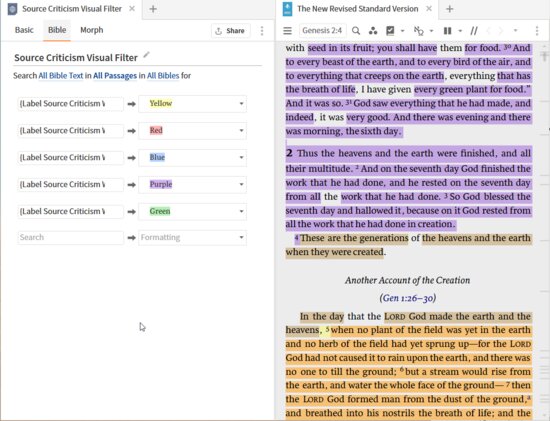
However, one can use the coding in the AFAT as a visual filter against the AFAT (see “The Hexateuchal Sources according to Eissfeldt”[1] for the codes.) This leads to datatype terms in the form of <EissfeldtHexateuch=D>.

How do I search for material on Genesis 3 but omit linguistic resources?
I would create an actual collection with a collection rule of * ANDNOT (type:(Bible, Grammar, Lexicon, "Bible Apparatus", "Clause Visualization") where the * is my default library of all Bible related resources that I don’t consider trash.
For a small library, one can afford to search for all references to Genesis 3.
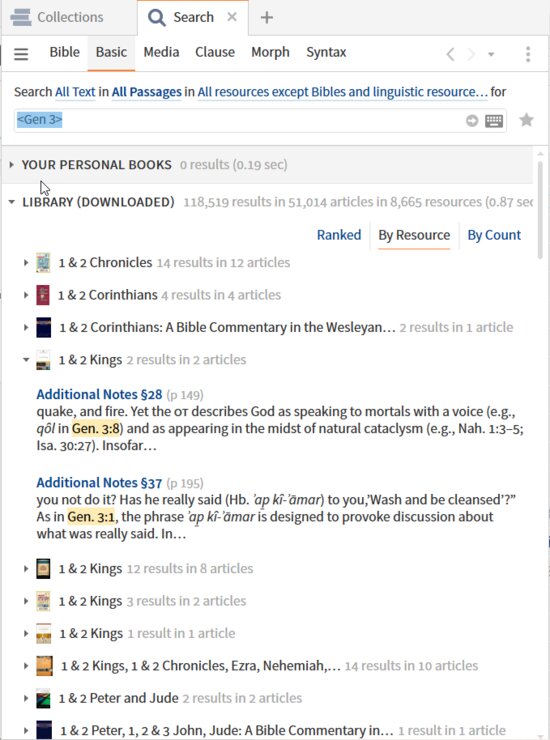
For those with larger libraries, set the search field to heading text and large text which limits the search to sections about Genesis 3 in some sense. This dramatically cuts the number of resources to view.
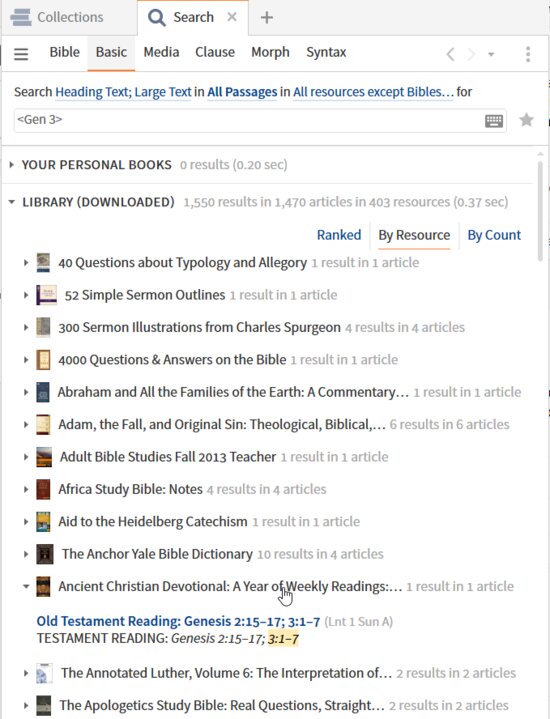
How do I search a set of resources such as the Journal of Biblical Literature?
Set the resources to the series:
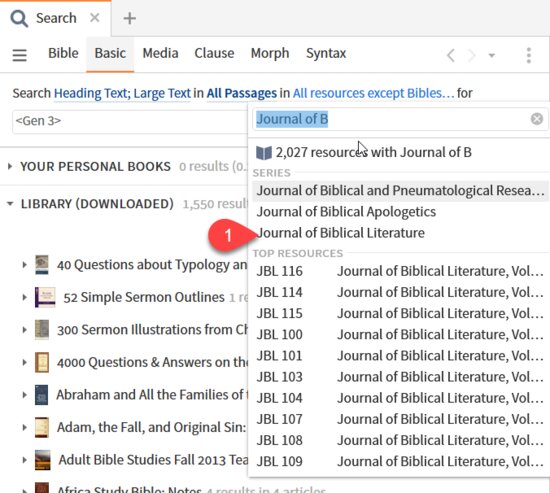
Using “canonical criticism” as the test case:
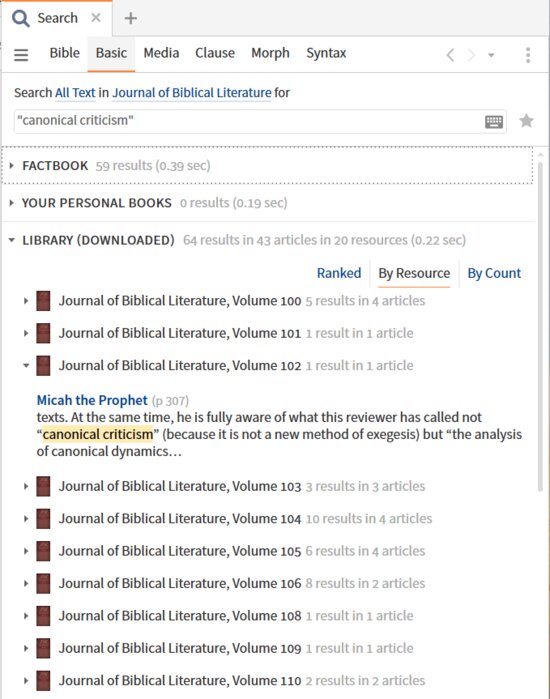
Who besides Nebuchadnezzar (Jer 27:6) is described as a servant of God?
Phil Gons suggested servant WITHIN 2 WORDS <Person ~ God> as producing good results.
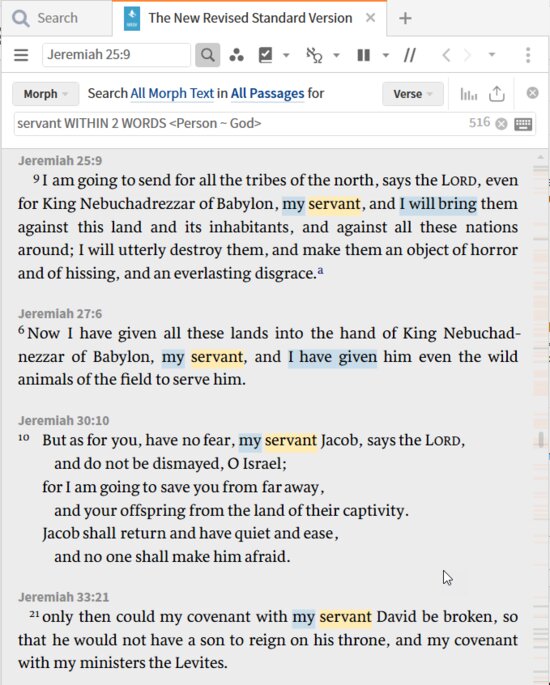
Martin Wetzel search the LHB which in theory should refine the results as none of the English to Reverse interlinear to Hebrew discrepancies need to be taken into consideration. His proposed search argument is (lemma:עֶ֫בֶד:1 BEFORE 2 CHARS <LogosMorphHeb ~ R??????> INTERSECTS <Person God>) OR (lemma:עֶ֫בֶד:1@N???C BEFORE 1 WORD <Person God>)
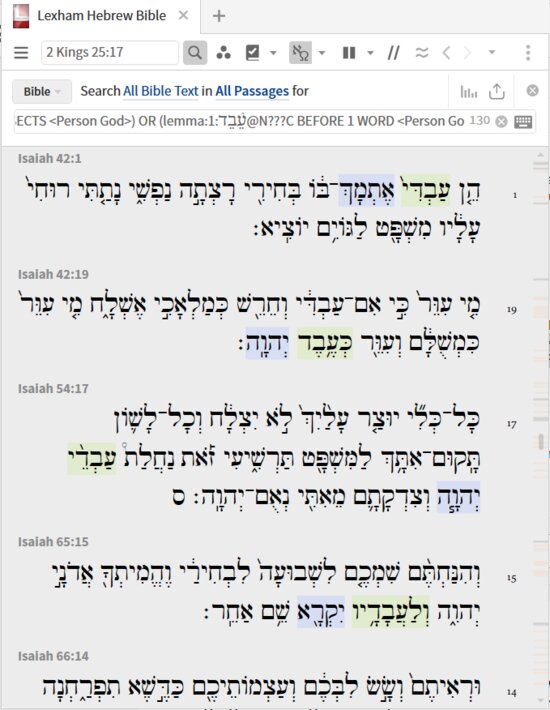
There is a considerable difference between the two results which requires investigation. A quick look shows much of the discrepancy is caused by the treatment of pronouns.
Where in Peter does he say believers should be prepared to defend their faith?
This is what the fuzzy Bible search is designed to do although currently one cannot constrain it to the epistles of Peter. Unfortunately, because of issues (at least in the beta) that disable the scroll function and the scroll bar and the design issues of no constraint on range, sort option, or find function … I don’t know whether this actually worked and found 1 Pt 3:15-17. Let this be a reminder to report problems and nag when basic functions simply don’t work.
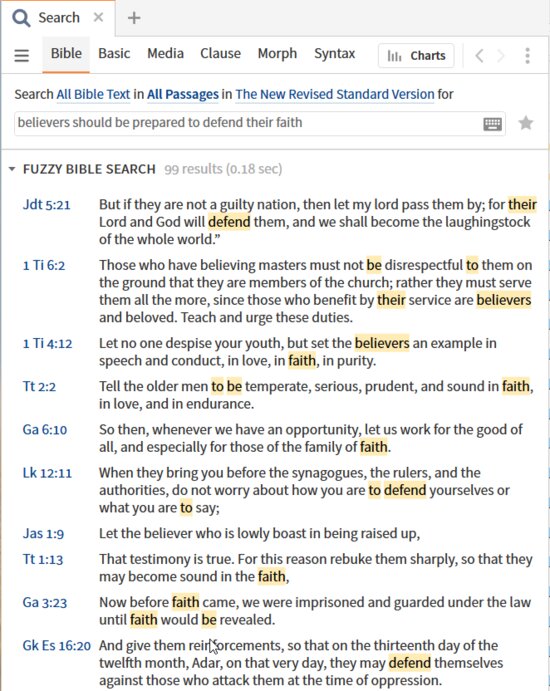
[1] Francis I. Andersen and A. Dean Forbes, Biblical Hebrew Grammar Visualized, ed. M. O’Connor, Cynthia L. Miller-Naudé, and Jacobus A. Naudé, Linguistic Studies in Ancient West Semitic (Winona Lake, IN: Eisenbrauns, 2012), 355.